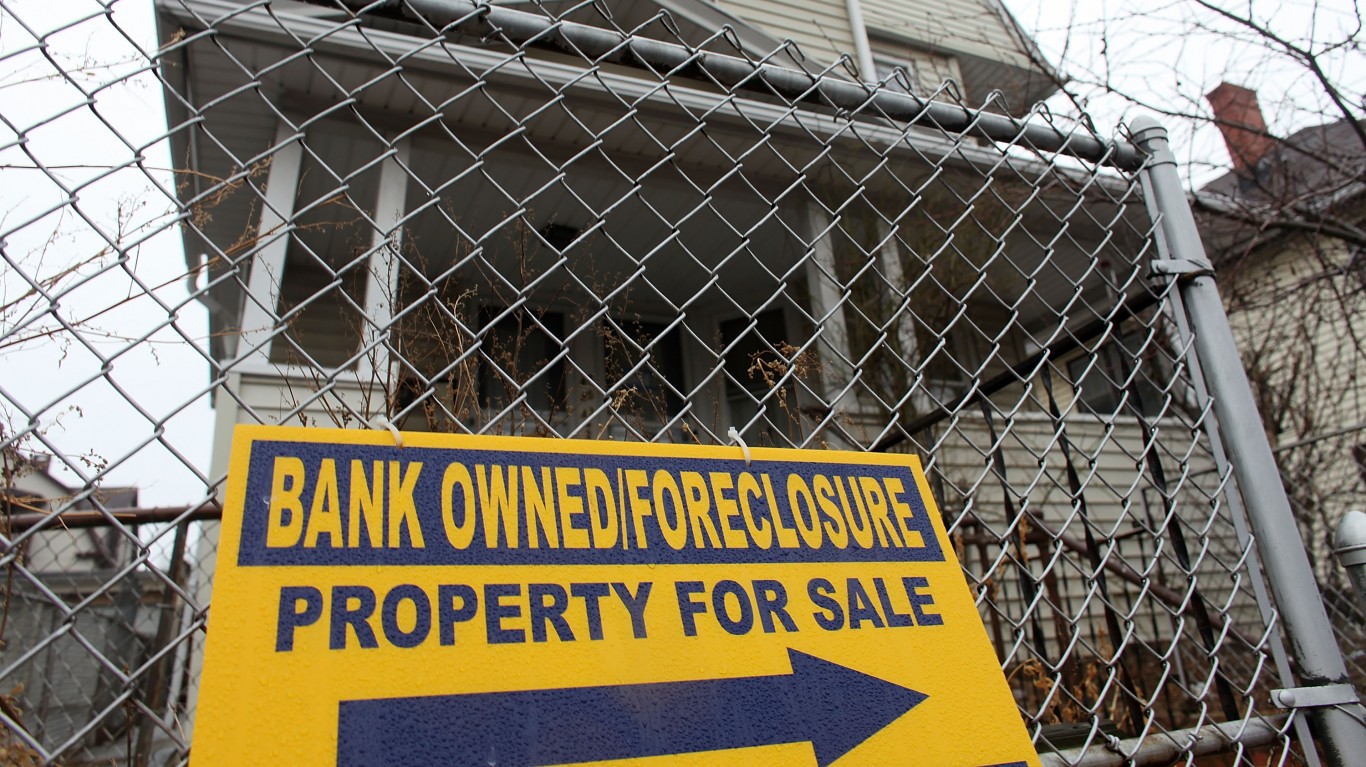
One of the most carefully followed research reports on housing is the ATTOM U.S. Foreclosure Market Report. The mid-year report for 2023 was just released. Among large cities, the highest foreclosure rates are in Cleveland and Atlantic City.
The report’s authors write that foreclosure rates are near pre-pandemic levels. ATTOM defines foreclosures as “default notices, scheduled auctions or bank repossessions.” In the first half of this year, 185,580 U.S. properties had foreclosure filings. That was up 13% from the first half of 2022 and 185% from the first half of 2021. “Similar to the first half of 2022, foreclosure activity across the United States maintained its upward trajectory, gradually approaching pre-pandemic levels in the first half of 2023,” said Rob Barber, CEO at ATTOM.
The trouble is far from that of The Great Recession. In the first half of 2010, 1,654,634 homes were in foreclosure. That was slightly above the first half of 2009, when the number was 1,528,364.
In the first half of this year, one in 752 homes in the U.S. had a foreclosure filing which is a rate of 0.13%. The cities with populations above 200,000 where foreclosure rates were highest were Cleveland at 0.33%, Atlantic City at 0.33%, Fayetteville, NC at 0.30%, Columbia, SC at 0.29%, and Lakeland, Florida at 0.29%.
The cities with the highest foreclosure rates tend to have one thing in common. They are poor based on median household income and poverty rate. Cleveland is an example.
Once a major industrial center, Cleveland had a population of 914,808 in 1950, making it one of the largest cities in America. According to the Census, that number was 361,607 last year.
Cleveland’s median household income was $33,678 last year, about half the national number. The poverty rate was 31.4%, nearly three times the national figure.
Are people who live in poverty more likely to default on their mortgages? Based on these figures, it is that way.
Thank you for reading! Have some feedback for us?
Contact the 24/7 Wall St. editorial team.


